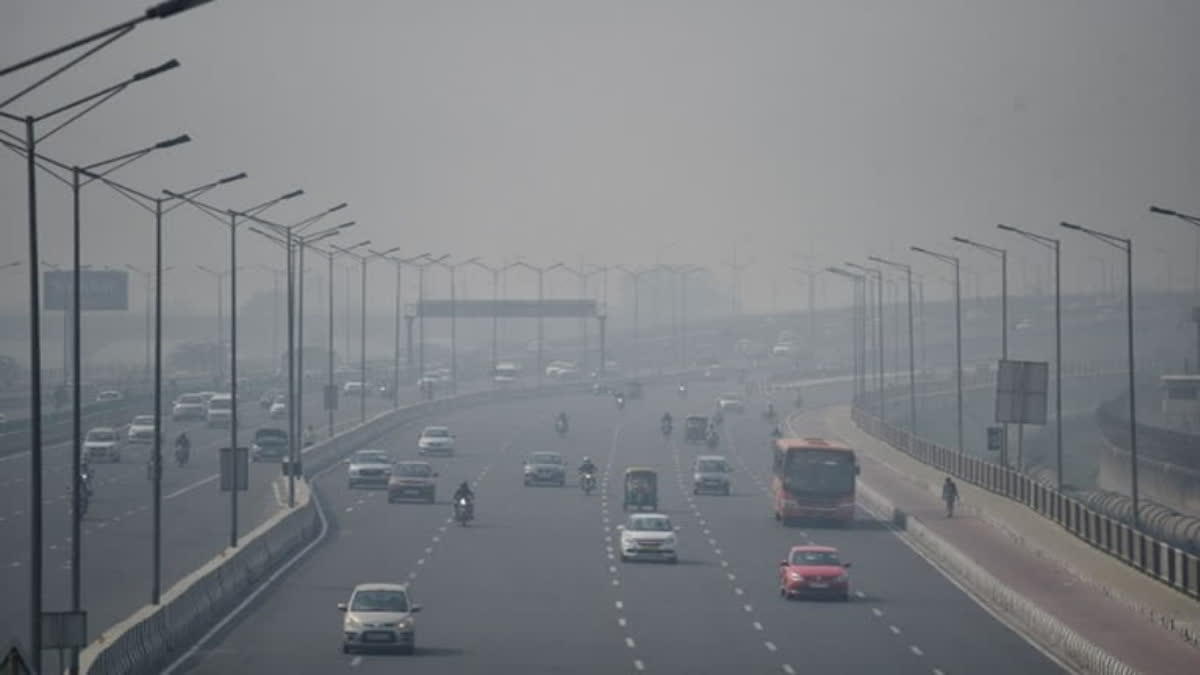New Delhi: The Graded Response Action Plan -- a set of anti-air pollution measures implemented in Delhi-NCR during the winter -- came into effect on Sunday. The Commission for Air Quality Management (CAQM), an autonomous body tasked with improving the air quality in Delhi and its adjoining areas, made crucial changes to the Graded Response Action Plan (GRAP) last year and again in July.
The new changes include strict restrictions on the plying of overage vehicles and a complete ban on the use of coal and firewood in eateries, restaurants and hotels when the Air Quality Index (AQI) breaches the 200-mark. BS-III petrol and BS-IV diesel four-wheelers will be immediately banned in Delhi and Gurugram, Faridabad, Ghaziabad and Gautam Buddh Nagar if the AQI crosses the 400-mark.
The CAQM, a statutory body formed under an Act in 2021, amended the GRAP in 2022 to ensure proactive implementation of anti-air pollution steps based on forecasts up to three days in advance. Earlier, the authorities would implement these measures, including a ban on construction and demolition, entry of high-emission vehicles and the use of coal and firewood, only after the pollution level touched a particular threshold.
The GRAP for the National Capital Region (NCR) is classified under four different stages of adverse air quality in Delhi: Stage 1 - 'poor' (AQI 201-300); Stage 2 - 'very poor' (AQI 301-400); Stage 3 - 'severe' (AQI 401-450); and Stage 4 - 'severe plus' (AQI >450). The revised GRAP recommends strict enforcement of the orders of the Supreme Court and the National Green Tribunal on overage diesel and petrol vehicles under Stage 1
It also calls for a complete ban on the use of coal and firewood in eateries, restaurants and hotels as soon as the AQI crosses the 200 mark. Earlier, the authorities would implement this measure under Stage 2. New steps suggested as part of the revised GRAP include "strict action to curb air pollution at all identified hotspots in the region under Stage 2".
Under Stage 3, states will have to impose strict restrictions on the plying of BS-III petrol and BS-IV diesel four-wheelers in Delhi and Gurugram, Faridabad, Ghaziabad and Gautam Buddh Nagar. The authorities may discontinue physical classes in schools for children up to Class 5 in such a scenario, the CAQM suggested.
At AQI above 450, four-wheelers registered outside Delhi, other than electric vehicles and those using CNG and BS-VI diesel, will not be permitted to enter Delhi. However, those carrying essential commodities or providing essential services are exempt. All other existing measures taken under different stages of GRAP will continue.
The CAQM on Saturday said Delhi-NCR recorded an average AQI of 167 from January 1 to September 30, the second-best for the corresponding period in six years. Better air quality during this period was recorded only during the pandemic-affected 2020. In 2022, 2021, 2019 and 2018, the average AQI during this period ranged from 180 to 193.
The CAQM has also granted a three-month reprieve for the use of diesel generator sets in nine critical categories of emergency services, easing concerns over power disruptions in essential sectors in NCR. It had earlier said the ban on diesel generators, imposed every winter to mitigate air pollution, would also cover essential services.



